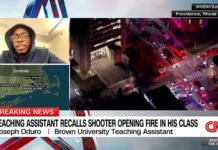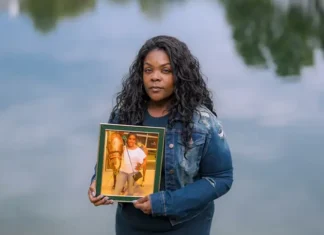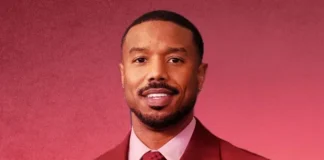
This story is part five of Word In Black’s Health Misinformation series, exploring the ways Black folks can identify false information and verify credible health sources. Read the series.
“We’re in our 20s, we want to do what’s cool, we’re hot,” says Kelsey Russell, a 23-year-old TikTok content creator. “This is the hottest, youngest, sexiest, and most fun time of your life.”
Gen Z is the generation known to set boundaries around work, consume information on social media, and not take no for an answer. We are the generation who uses our voice to speak on injustice and mental health — despite societal consequences.
But, as avid social media users, we are often the unsuspecting target of misinformation and disinformation. In the age of capitalism and chasing trends, it’s easy to get caught up in a perfect storm of misleading information. And the tired, old tale that Gen Z doesn’t consume traditional media certainly isn’t helping.
Word In Black spoke with three Gen Zers about how they navigate information on social media and why it’s crucial that our generation becomes more media literate. Russell, a full-time graduate student in Harlem, is helping to pioneer the cause by using her TikTok page of nearly 68,000 followers to promote media literacy.

“It’s never really been that cool to be smart, to be educated,” she says. “A big part of my TikTok is to make smart sexy. It’s really sexy to be smart. It’s one of the coolest things.”
In her latest TikTok series, she reads print copies of The New York Times to her followers with the goal of helping viewers see the value of reading things on paper and breaking down the concepts of media literacy.
Media literacy “provides a framework to access, analyze, evaluate, create and participate with messages in a variety of forms — from print to video to the internet. Media literacy builds an understanding of the role of media in society as well as essential skills of inquiry and self-expression necessary for citizens of a democracy,” according to the Center for Media Literacy.
A 2022 report by the American Press Institute surveyed nearly 6,000 Gen Zers and Millennials about their news habits and attitudes. The report found that 79% of this population consumes the news daily — frequently from social media. Of the 16- to 40-year-olds surveyed, most use Facebook, YouTube, and Instagram for news and information.
Gen Z and Millennials use Facebook, YouTube, and Instagram the most for news and information
Survey of 5,975 respondents ages 16 to 40
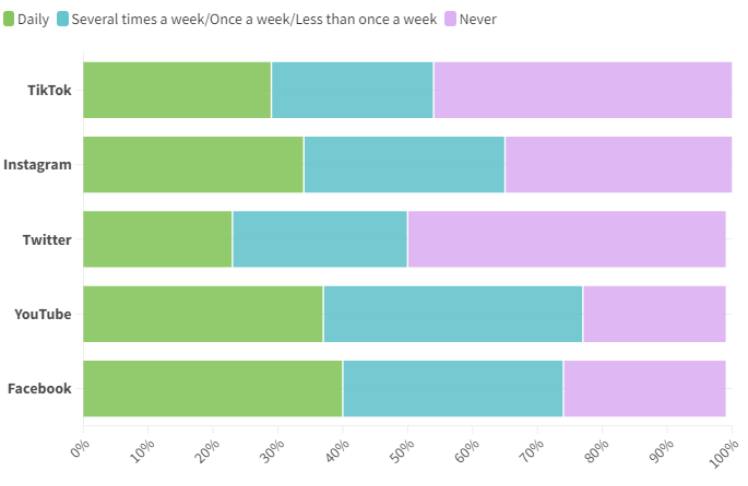
Many Gen Zers have a hard time telling fact from fiction, in part because of the overwhelming amount of information and lack of education about social media literacy. We grew up in a time when the education system was rapidly changing. From one grade year to the next, we started using more technology in and out of the classroom.
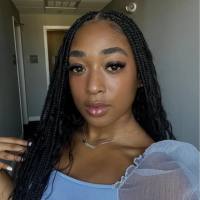
As we reached our teen years, social media platforms like Instagram, Twitter, and Snapchat became go-to places to connect with friends, share our lives, and keep up with the drama. With the constant cycle of apps and pressure to stay current, many Gen Zers didn’t have an opportunity to become media literate on the platforms.
“When I was in elementary school, I feel like a lot of Gen Z people knew how to use a library catalog … but by the time we’re seniors, I’m getting news on Instagram,” Russell says. “And I’m not allowed to bring that to class because we haven’t learned how to properly cite an Instagram post.”
The American Press Institute report highlights the digital fatigue Gen Zers and Millennials are facing. Three in 10 surveyed said the longer they are online, the worse they feel. The abundance of information at our fingertips can easily feel suffocating.
“We live in an anxious-prone society,” Russell says. “Our generation lives a lot on our phones, so we’re just living in a cycle that creates anxiety and depression.”
The Salespeople of Health Content
For many Gen Zers, when it comes to health information, the first stop is social media. With wellness, body positivity, and diet culture constantly trending, parsing out information that is science-based versus opinion-based is difficult.
On one end, you see pseudo-health videos and posts promoting certain diets or workouts promising to help you lose weight. And, on the other, you see medical doctors trying to reach people with accurate information. But, Russell says, with pressure to appear slim, Gen Z is going to listen to the person they want to look like.
“A lot of Black folks don’t have access to doctors, and our trust in doctors is so weathered for so many valid reasons. I also think about a lot of people who don’t interact with doctors enough to even trust them on TikTok,” Russell says. “Most young people are interacting with influencers who are salespeople more than doctors to get their information.”
Joshua Clark, 23, is a quality control associate in Maryland who uses Twitter and Instagram to look at art, keep up with celebrities, and get the latest on the news. He often sees posts about diet pills that claim to help you lose a specified amount of weight in a week.
“Every time I see information on social media, I always take it with a grain of salt,” he says. “Generally, if information is being advertised in a big way, there’s money behind it. They want to get a return on their investment.”
As a result, Clark rarely goes to social media for health information. Usually, health content will pop up on his feed while browsing, but he doesn’t seek out health information on Instagram or Twitter. If he’s feeling sick, he’ll go to Google first to check what his symptoms are. In addition to online information, he trusts his doctor to give him a well-rounded view of his health concerns.
“Health isn’t a one-size-fits-all type of deal,” he says.
Health information can be complicated. How the information is being shared and explained will dictate who can understand the complexities of the topic. Clark studied biology, and he says professors emphasized the importance of breaking down information in a way that is understandable without changing the message or losing people in the details.
That responsibility doesn’t just fall on social media content creators.
Reporters’ Responsibility
You can’t talk about the influence social media has on Gen Z without talking about the responsibility of reporters. Whether Gen Z is media literate depends on who you ask. But traditional media and TV news have changed significantly in the last 10 years. Trust has wavered, and the uptick of “fake news” has created an industry of instability.

“I think the more recent generation has a better idea that the media isn’t always telling things as they are,” Clark says. “There is a lot of puppeteering in the media … and invisible forces that change how different media sites share information.”
Regardless of what news organizations Gen Zers trust, each outlet has a responsibility to inform the public about health information in a clear and understandable way. And, in this final story in Word In Black’s fact or fiction series, the role of reporters is a persistent theme.
Part of the disconnect between Gen Z and traditional media is the accessibility of the information and who is producing it. Many news sites are behind a paywall, and the target audience isn’t always Black and brown Gen Zers. As a result, nearly 50% of Gen Z and Millennial news consumers think media coverage of Black Americans is inaccurate.
Nearly 50% of Gen Z and Millennials think media coverage of Black Americans is inaccurate
Survey of 5,975 respondents ages 16 to 40
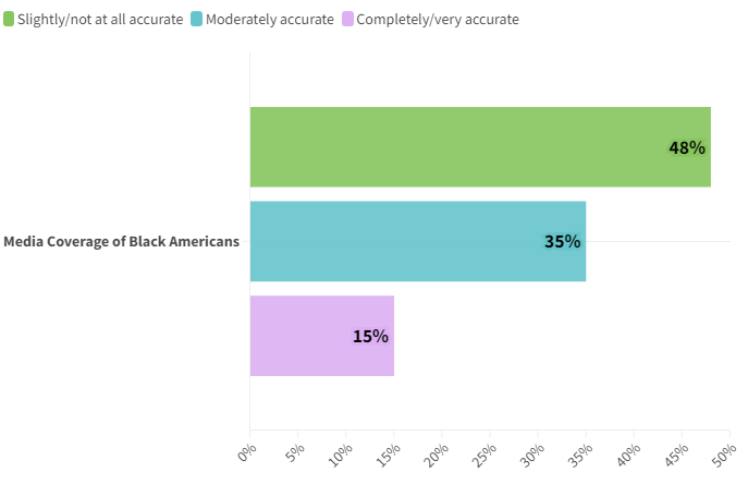
“We have to see our people in those legitimate spaces for us to believe they’re legitimate,” Russell says. “You need voices from Gen Z. We need a Gen Z Oprah.”
Don’t Believe Everything You See Online
Jourden Barclay, 19, is a full-time college student in Brooklyn. She says part of being media literate is not believing everything you see online. Growing up in a Caribbean household, her parents raised her not to take what she sees on social media at face value.

As an active social media user, she uses Instagram leisurely. But she recognizes people put their own twist on information. If she’s looking for reputable sources, she turns to The New York Times. Even referencing Google for health information is something she is cautious about.
“People are really heavily influenced by social media. I don’t think everybody has a mind of their own,” Barclay says. “Everybody’s just gonna be automatically brainwashed, just thinking it’s a fact.”
Like Barclay, Clark, and Russell, many Gen Zers and Millennials are concerned about misinformation. A top concern for Gen Z surveyed by the Institute was that their family have been exposed to misinformation.
Misinformation is a concern for Gen Z and Millennials
Survey of 5,975 respondents ages 16 to 40

Russell says it’s not hard to fall into misinformation.
Instead, she wants Gen Z to ask themselves a few questions: Why was it written? Why are you reading it? What are the motivations of the people writing this? And why am I consuming this information?
“I think we have the largest access to information of any generation. We have the most daring ideas ever, that are revolutionary,” Russell says. “I think the media literacy piece is the key that’s missing to those great ideas.”




